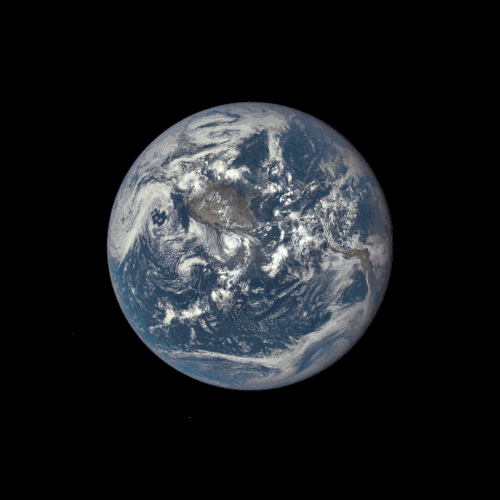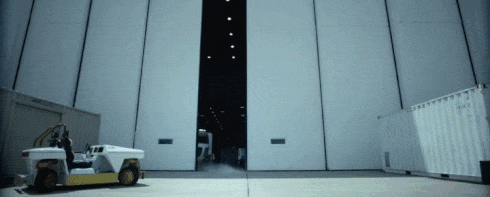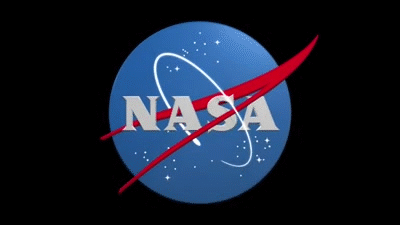National Aviation Day!
National Aviation Day!

Today, August 19, is National Aviation Day! You might wonder why we’re celebrating National Aviation Day, let us tell you…
First, did you know that EVERY U.S. commercial aircraft and every U.S. air traffic control tower has NASA-developed technology on board? It’s true! Here at NASA, we’re invested in aeronautic research. Today’s air transportation system is an integral part of the U.S. and global economies.
It’s the primary mechanism for connecting countries across the world through moving people, as well as goods and services. You feel the impacts of aviation and the air transportation system everyday. Just about every product produced and purchased today has been touched by aviation in some way. Aircraft transport 17.7 billion tons of freight every year. While you may not have flown today, something you needed did.

Our aviation experts are dedicated to improving the design of airplanes so they’re more Earth friendly – less fuel use, lower pollution, less noise around airports. We also work with the Federal Aviation Administration to provide new tools to air traffic controllers for improving efficiency and reducing delays.
So, celebrate National Aviation Day with us! Spread Your Wings, take a photo, post it today and tag #SpreadYourWings and/or #NationalAviationDay. We may even pick your photo to highlight on our NASA web page!
More Posts from Space-m17-blog and Others
The true sign of intelligence is not knowledge but imagination.
Albert Einstein (via alberteinsteinquotes)









An Adaptable Species: Part 1 of 4 Episode 11: The Immortals, Cosmos: A SpaceTime Odyssey

Welcome to the new, official NASA Tumblr. We’re going to be giving you a regular dose of space here. Follow along and join us as we share information, images and video about our mission of exploration and discovery. First up, check out the moon photobombing Earth in this new animated gif. The far side of the moon, illuminated by the sun, is seen as it crosses between our ‘EPIC’ camera on the Deep Space Climate Observatory (DSCOVR) satellite, and the Earth - one million miles away. Check it out: http://go.nasa.gov/1Dq0IO9
By Sarah Knapton, Science Editor

Interstellar was right. Falling into a black hole is not the end, professor Stephen Hawking has claimed.
Although physicists had assumed that all matter must be destroyed by the huge gravitational forces of a black hole, Hawking told delegates in Sweden that it could escape and even pop into another dimension. The theory solves the ‘information paradox’ which has puzzled scientists for decades. While quantum mechanics says that nothing can ever be destroyed, general relativity says it must be.
However under Hawking’s new theory, anything that is sucked into a black hole is effectively trapped at the event horizon - the sphere surrounding the hole from which it was thought that nothing can escape. And he claims that anything which fell in could re-emerge back into our universe, or a parallel one, through Hawking radiation - protons which manage to escape from the black hole because of quantum fluctuations.
“If you feel you are in a black hole, don’t give up, there’s a way out,” Hawking told an audience held at the KTH Royal Institute of Technology in Stockholm In the film Interstellar, Cooper, played by Matthew McConaughey, plunges into the black hole Gargantura. As Cooper’s ship breaks apart in the force, he evacuates and ends up in a Tesseract – a four dimensional cube. He eventually makes it out of the black hole.
(excerpt - click the link for the complete article)

A galactic sunflower
Give support to this project

The Milky Way in a beautiful image by Lincoln Harrison
Tour NASA with One Direction

You might have heard, One Direction filmed their ‘Drag Me Down’ music video at NASA’s Johnson Space Center, and we know you’re dying to take a tour of everything they saw. So, here we go…
1) Space Exploration Vehicle (SEV)

Even though Louis is roving around Johnson Space Center in our Space Exploration Vehicle, its intended destination is quite different. The SEV will be used for in-space missions and for surface explorations of planetary bodies, including near-Earth asteroids and Mars!
2) Robonaut

Harry and Robonaut bonded during their visit to Johnson Space Center for the filming of their music video. This robot will help humans work and explore in space. Working side by side with humans, or going where the risks are too great for people, robots will make it so we never get ‘dragged down’!
3) Partial Gravity Simulator & Space Station Mockup Bike

You can find Niall floating around in our Partial Gravity Simulator, aka POGO, in the new music video. This tool is used to provide accurate simulations of reduced gravity. Astronauts use this for training and to learn how to perform tasks in space.
While Niall floats with POGO, Liam is training on the International Space Station Mockup Bike, aka CEVIS. This bike provides aerobic exercise and is used to countermeasure the harmful effects of exposure to microgravity while on the space station.
4) Orion Spacecraft

The Orion spacecraft will be the first of its kind that will carry humans to deep space and to Mars! It will be the safest, most advanced spacecraft ever built, and Harry, Niall, Louis and Liam all got to check it out.
5) T-38 Jets

Flying these T-38 jet trainers are an important part of preparing to be an astronaut. Flying and landing them acts as a real-life simulation for practicing spacecraft operations. They can even fly at supersonic up to Mach 1.6, and can put their pilots through more than seven Gs!

The Laniakea Supercluster (Laniakea; also called Local Supercluster or Local SCl) is the galaxy supercluster that is home to the Milky Way, our galaxy, and therefore to the Solar System and the Earth.
The NASA “Worm” Logo
Just like many organizations, the style and logos can change over time. You are probably most familiar with our “meatball” logo. No, unfortunately this does not refer to the delicious food. This logo (below) is our most popular symbol, and dates back to 1959.

But, we’ve also had other insignia that represented our organization throughout the years.
The “worm” logo (below) was used by the agency from 1975 until 1992. The organization wanted to create a more “modern” logo, which resulted in the unique type style of the “worm” logo.

Even though this logo was retired in 1992, the Graphics Standards Manual is still available online HERE.
You can also read up about the emblems, logos and insignia used by NASA throughout the years in a new e-Book available for free HERE.
Make sure to follow us on Tumblr for your regular dose of space:http://nasa.tumblr.com
-
 sweetbutterbliss liked this · 2 years ago
sweetbutterbliss liked this · 2 years ago -
 meaningofnames-blog liked this · 8 years ago
meaningofnames-blog liked this · 8 years ago -
 astrovni-blog reblogged this · 9 years ago
astrovni-blog reblogged this · 9 years ago -
 axelsboredom liked this · 9 years ago
axelsboredom liked this · 9 years ago -
 dude-vader liked this · 9 years ago
dude-vader liked this · 9 years ago -
 illaine-waterhouse reblogged this · 9 years ago
illaine-waterhouse reblogged this · 9 years ago -
 paranormal2things liked this · 9 years ago
paranormal2things liked this · 9 years ago -
 chalolo10-blog liked this · 9 years ago
chalolo10-blog liked this · 9 years ago -
 elijahalo-blog liked this · 9 years ago
elijahalo-blog liked this · 9 years ago -
 dreamsgonereality liked this · 9 years ago
dreamsgonereality liked this · 9 years ago -
 aron85312-blog liked this · 9 years ago
aron85312-blog liked this · 9 years ago -
 its-diane-universe-blog liked this · 9 years ago
its-diane-universe-blog liked this · 9 years ago -
 montanabohemian reblogged this · 9 years ago
montanabohemian reblogged this · 9 years ago -
 hun2troiskhap-blog reblogged this · 9 years ago
hun2troiskhap-blog reblogged this · 9 years ago -
 hun2troiskhap-blog liked this · 9 years ago
hun2troiskhap-blog liked this · 9 years ago -
 thelittleworm liked this · 9 years ago
thelittleworm liked this · 9 years ago -
 quicklydeepestwonderland-blog liked this · 9 years ago
quicklydeepestwonderland-blog liked this · 9 years ago -
 paolarq liked this · 9 years ago
paolarq liked this · 9 years ago -
 nikhilsathe-blog liked this · 9 years ago
nikhilsathe-blog liked this · 9 years ago -
 calloutnevvegas liked this · 9 years ago
calloutnevvegas liked this · 9 years ago -
 tristanshoard reblogged this · 9 years ago
tristanshoard reblogged this · 9 years ago -
 criby-blog1 reblogged this · 9 years ago
criby-blog1 reblogged this · 9 years ago -
 criby-blog1 liked this · 9 years ago
criby-blog1 liked this · 9 years ago -
 witchybibliophile liked this · 9 years ago
witchybibliophile liked this · 9 years ago -
 socialjusticefun-sucker reblogged this · 9 years ago
socialjusticefun-sucker reblogged this · 9 years ago -
 melonssoup liked this · 9 years ago
melonssoup liked this · 9 years ago -
 reallouist91 reblogged this · 9 years ago
reallouist91 reblogged this · 9 years ago -
 reallouist91 liked this · 9 years ago
reallouist91 liked this · 9 years ago -
 myon-myon liked this · 9 years ago
myon-myon liked this · 9 years ago -
 reallyfantastictheorist-blog liked this · 9 years ago
reallyfantastictheorist-blog liked this · 9 years ago -
 shaxxspetotter liked this · 9 years ago
shaxxspetotter liked this · 9 years ago -
 lin-jj-blog liked this · 9 years ago
lin-jj-blog liked this · 9 years ago -
 librascurio liked this · 9 years ago
librascurio liked this · 9 years ago -
 bikerideoceanside liked this · 9 years ago
bikerideoceanside liked this · 9 years ago -
 rjbailey reblogged this · 9 years ago
rjbailey reblogged this · 9 years ago -
 theyoungfestivalcollector3-blog reblogged this · 9 years ago
theyoungfestivalcollector3-blog reblogged this · 9 years ago -
 lachoot reblogged this · 9 years ago
lachoot reblogged this · 9 years ago -
 natanesteban reblogged this · 9 years ago
natanesteban reblogged this · 9 years ago -
 squird5 liked this · 9 years ago
squird5 liked this · 9 years ago
I love space. I've been to space camp in Huntsville Alabama and I am planning on going every summer. I look forward to be an astronaut for nasa on the sls that is planned to be launched 2018. And the manned mission 2030. So yeah I won't let anything get in my way.
138 posts